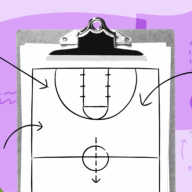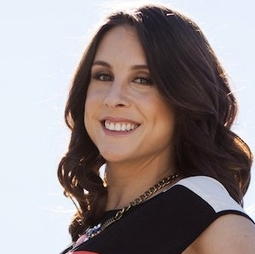How to progress in your career and advance beyond an entry level position
When you’re just getting started in your career—or switching from one career to the other—generally, you kick things off in an entry level position. Entry level positions are a great fit for early stage professionals—they can give you key insights into your company, your industry, and what you ultimately want out of your career.
But after gaining some experience, at a certain point, you’ll probably start to feel like you’re not exactly an entry level candidate anymore—and will feel ready (or, in some cases, more than ready) to transition into a more senior role.
But how, exactly, do you do that? Let’s take a look at the steps you should plan to take if you want to advance beyond an entry level position—and move on up in your career:
Define How You Want To Advance
Advancing beyond an entry level position just for the sake of advancement isn’t going to set you up for long-term success in your career; you could end up taking a position that isn’t the right fit or finding yourself on a career path that isn’t aligned with your goals. So, before you start making moves to move up in your career, it’s important to define how, exactly, you want to advance.
“It’s relatively easy to advance in your career,” says Dr. Rosina Racioppi, CEO and President of WOMEN Unlimited Inc., a consultancy that partners with Fortune 500 and Fortune 1000 companies to help their female talent advance in their careers. “However, the challenge is to craft a career progression that will be satisfying to you.”
Before you start actively pursuing more senior roles, take some time to define the tasks and responsibilities you enjoy the most, and the ones you want to explore. When you do advance beyond your entry level position, what do you want that advancement to look like? For example, if you’re currently an assistant to the HR department, are you looking to get promoted to a more senior HR position, like an HR manager—or do you want to step into a higher level administrative role, like executive assistant?
The more clarity you have on how you want your career to progress, the easier it will be to take steps towards that desired progression—and advance into a position that feels like the best fit.
Build Your Network—Within And Outside Of Your Company
If you want to advance beyond an entry level position, the best thing to do is network, network, network.
“The BEST way to secure a higher level position… is to network,” says Stacey Kaye, Job Search Skills Coach and Founder of Campus To Career, which helps college students secure employment. “If you are not networking, then you are missing out on making connections with people who may refer you to your next job.”
“The most important thing to do to advance in your career is establish a network that keeps you informed about your industry, company, and yourself,” seconds Racioppi. “Building a network of individuals in the industry you want to pursue can help you find potential opportunities but also help you to understand your market worth.”
Building connections with professionals outside of your company is just as important. “This enables you to develop a robust relevant network which you can tap into should you decide to leave your company for your next job,” says Kaye.
Attend networking events in your industry. Identify professionals you admire (both within and outside of your company), and ask them if they’d be willing to meet for coffee (or over Zoom!) to discuss their career and how they got there. Engage in events and groups that will put you in touch with leaders in your company and industry—for example, an internal committee or a professional networking group in your area.
Ask What You Can Do To Advance
There’s no set definition around what it takes to advance beyond an entry level position; different companies—and different leaders—look for different things when deciding to promote someone.
So, if you want to know how to get promoted and move up in your company, one of the best things you can do? Ask your manager how to make that happen.
Schedule a meeting with your manager, supervisor, or leader within the department you hope to advance in. During the meeting, “ask them directly what skills and characteristics they believe are important to be successful in the organization,” says Racioppi.
Asking the people who have the power to promote you directly what they’re looking for will give you key insights on what skills, qualities, and characteristics you should work on developing—and how to set yourself up to get promoted beyond your current entry level position.
Exceed Expectations
If you want to advance beyond an entry level position, doing the bare minimum just won’t cut it.
“Don’t just do what’s expected,” says Kaye. “Go the extra mile in your own work.”
For example, if you’re in an entry level sales position and your manager gives you a target closing 10 deals a month, do everything you can to close 15. If you’re working as a receptionist and your manager asks you to greet visitors when they enter the office, make sure you’re not only saying hello to those visitors, but offering them water, coffee, or other refreshments before they head into their appointment.
When you commit to consistently exceeding expectations, you put yourself in a prime position to move past your entry level position and advance in your career. “If [entry level candidates] are able to consistently deliver good work, especially more so than their peers, then they are likely to progress in their careers quickly,” says Racioppi.
Have The Right Attitude
Doing quality work is essential if you want to advance beyond an entry level position. But how you do that work is just as important as the work you’re actually doing.
“Have a positive attitude,” says Kate. “People like to work with happy, positive people—[and] people like to promote happy, positive people.”
Treat people with respect. Don’t complain or gossip. Show enthusiasm for the work you’re doing. When you show up to work with the right attitude, you’re setting yourself up for success—and to get promoted into a higher level position.
Use These Tips To Move Beyond Your Entry Level Role—And Step Into The Next Stage Of Your Career
Entry level positions are a perfect fit when you’re just starting out in your career—but at a certain point, you’re going to feel ready to move up. And with these tips, you have everything you need to stand out, move up, and advance beyond an entry level position—and onto the next stage of your career.
“If you are really aiming for advancement, it should not be a singular conversation,” says Racioppi. “It requires ongoing conversations that will ultimately guide you in your thinking and development.”











































